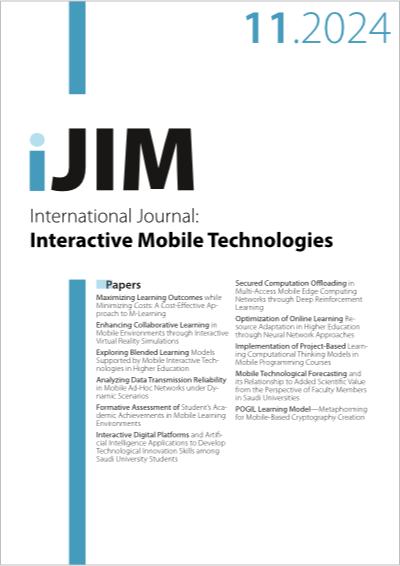Mobile Technological Forecasting and its Relationship to Added Scientific Value from the Perspective of Faculty Members in Saudi Universities
DOI:
https://doi.org/10.3991/ijim.v18i11.48869Keywords:
Keywords-- Academic freedom, scientific value added, Mobile technological forecastingAbstract
The current study aims to identify the degree of academic freedom practice and its relationship to the added scientific value and mobile technological forecasting from the perspective of faculty members in Saudi universities. To achieve this goal, a random sample of 23 faculty members from King Khalid University was selected from various specializations. A questionnaire was prepared to determine the extent of academic freedom exercised, the scale of scientific value added, and the scale of technological forecasting. The mean, standard deviation, and linear regression analyses were also used to analyze the research results. The results revealed that faculty members’ practice of academic freedom was average, while scientific value added and technological forecasting were high. The results also indicated the potential to predict the exercise of academic freedom through rapid access to information, financial resources, and technological forecasting.
Downloads
Published
How to Cite
Issue
Section
License
Copyright (c) 2024 A.S Abdelmagid, A. M. Ibrahim, A. A. Teleb, S. H. Almutairy, Owies Marashdeh

This work is licensed under a Creative Commons Attribution 4.0 International License.



